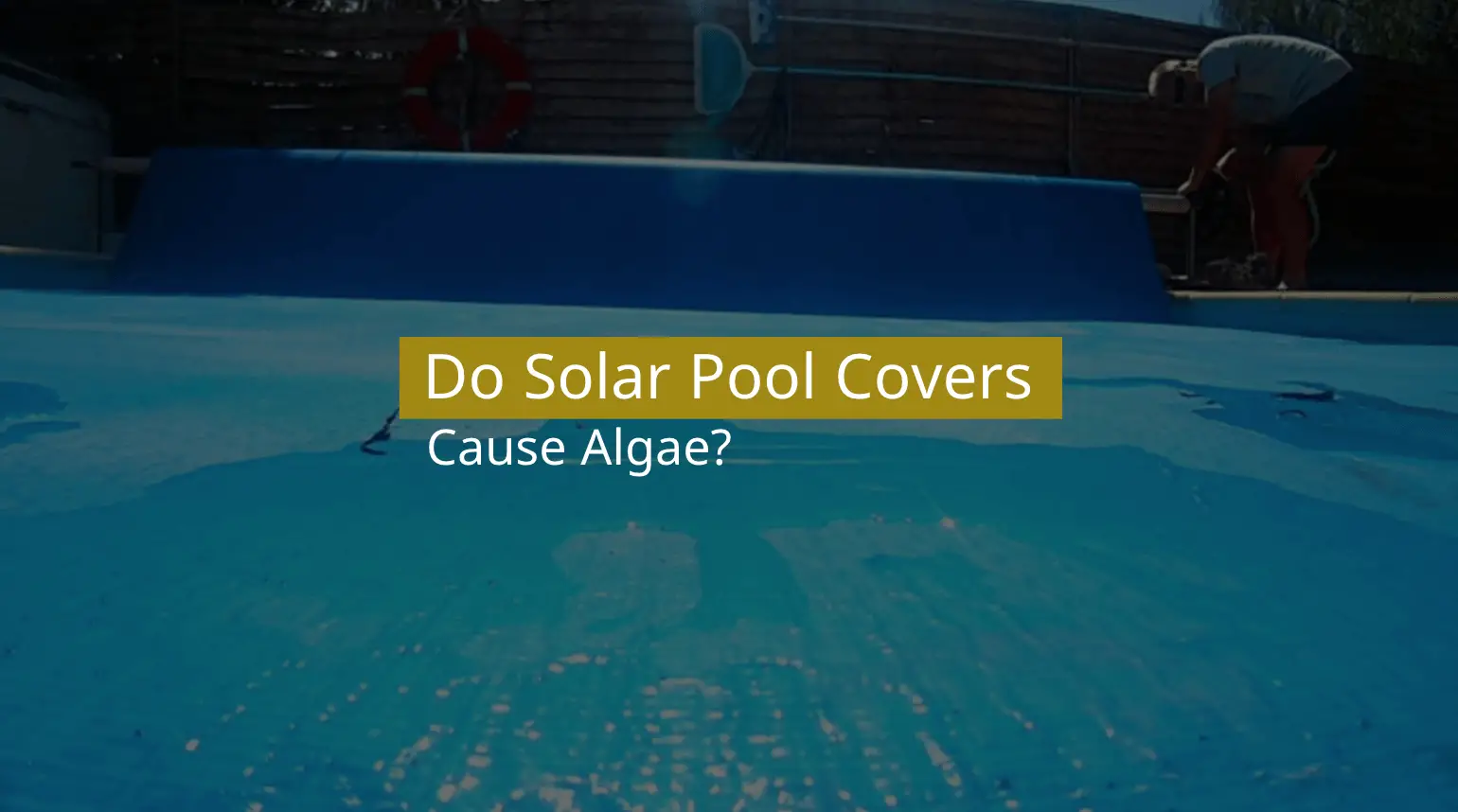
If you have a swimming pool in your backyard, you probably know that you need to cover it up with a pool cover to protect your investment. But did you know that a solar pool cover can actually cause algae?
It’s true. Algae is a harmful organism that can cause water clarity problems, loss of sunlight to the swimming area, and even health concerns. If you notice green algae forming on your solar pool cover or around the pool, it’s important to take action to prevent it from becoming a larger problem.
How to prevent the growth of algae when using solar pool covers?
1. Use the Right Solar Cover
First, you should use a high-quality cover that blocks out 99% of the sun’s rays. A low-quality cover is not going to block out enough sunlight to keep the algae away.
Second, use the right size cover for your pool. Too small, and your solar pool cover will allow light through. Too large, and you’ll be wasting energy and money.
Third, it’s important to clean your solar pool cover regularly. This will remove the dirt, oil, and debris that causes algae to grow. It’s best to vacuum or wash your pool cover. Be sure to keep an eye on the water level as well, as too much water can create algae growth. You may read also the guide on Best Battery for Hammerhead Pool Vac
2. Clean the Cover Before Use
Prevent algae growth by cleaning the cover before use. Algae thrive in areas of stagnation and can form on any surface that does not receive regular cleaning. Remove any debris and oils that may have accumulated on the cover, and then coat the cover with a protective sealant.
Regular cleaning and coating of the cover with a sealant will help to prevent algae from forming and will ensure optimal performance from your solar pool cover.
3. Keep the Water Moving
To keep your water moving and the water temperature stable, make sure that the solar pool cover is open at least one-quarter of the way during sunny days. Open the cover more than this if needed to keep the water temperature stable.
4. Keep the water chemistry balanced
Keep the water chemistry balanced for a cleaner pool. The water chemistry of a pool includes the pH level, dissolved oxygen level, and alkalinity. If the pH level is high or the alkalinity level is low, it can cause algae growth. Algae is the common name for aquatic plants and is a form of plant life that uses sunlight as energy.
| Chlorine | 1-3 ppm |
| pH | 7.2 – 7.6 |
| Calcium | 200 ppm |
| Alkalinity | 80-100 ppm |
| Cyanuric Acid | 30-50 ppm |
5. Shock Your Pool Regularly
Shocking your pool is done by using a shock wave to break the water surface. This will force the water back to the bottom of the pool. Shocking your pool will make sure that there are no algae and that the water is clean. Shocking your pool is different from cleaning it.
Cleaning your pool only removes the dirt and debris that has accumulated. It does not shock the water. It is very important to shock your pool regularly. This will also help you to prevent the buildup of algae. Shock your pool once a month to help your pool be clean. You may read also Best Pool Brush for Pebble Tec
6. Monitor You Pool Regularly
If you want to avoid algae in your pool, it is important to monitor it. Algae is a type of plant that thrives in the warm water of your pool. It forms a greenish-gray scum that is not easily removed by swimming pool cleaners. This is why it is important to monitor your pool’s water conditions. Algae can be prevented by shocking your pool. This means shocking your pool at least once a month. You can do this by adding chlorine to your pool water.
7. Use Algae Starver
Use algae straver to get rid of algae. It contains chemicals that remove algae from the water. A shock treatment will kill the algae while also killing the bacteria in your pool. You will be able to clean your pool with ease after you have used Algae Starver.
Conclusion
In conclusion, the only real solution to algae is to have a healthy balance of algae and bacteria in your pool. Algae can be controlled with chemicals, but you must also control the amount of sunlight your pool receives. The best way to do this is to install a solar pool cover. It will prevent your pool from getting too hot and it will also block the sunlight that is causing the algae to grow. You may check also Off Season Pool Care Tips
FAQs
Should I leave the solar pool cover on?
When the pool is not being used, you should have a solar cover on the pool. The cover on the pool helps to keep the water out of the hot sun and also warms the pool during the day.
Do algae grow under pool cover?
Yes, algae can grow under pool covers. This is because the cover creates a warm and moist environment that is ideal for algae growth. To prevent algae growth, it is important to remove any leaves or other debris from the cover and to clean the cover regularly.

Hi, This is Josh. I am a former competitive swimmer and current fitness enthusiast.
I created this site to share my love of swimming with the world!
